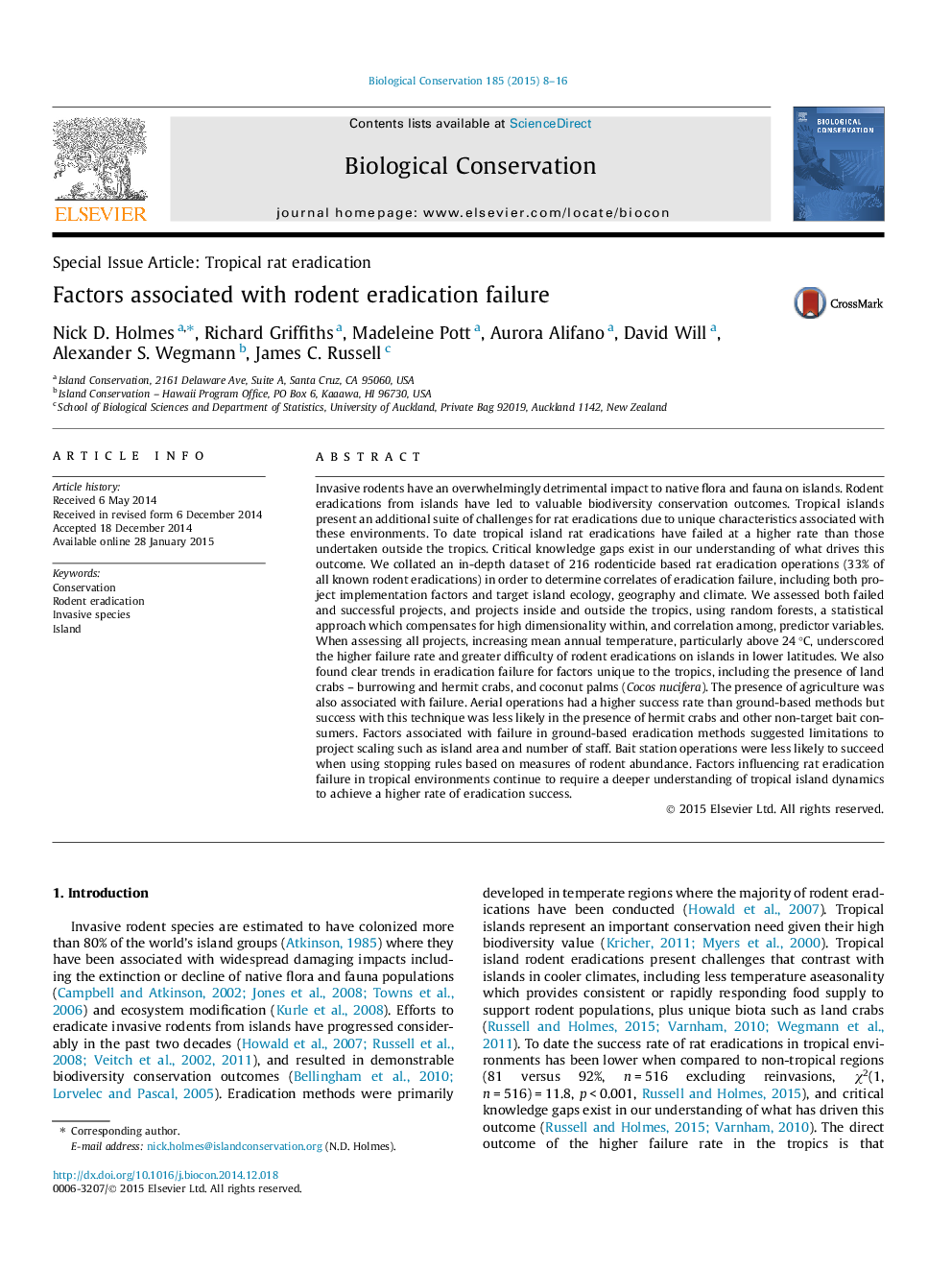| کد مقاله | کد نشریه | سال انتشار | مقاله انگلیسی | نسخه تمام متن |
|---|---|---|---|---|
| 6299174 | 1617916 | 2015 | 9 صفحه PDF | دانلود رایگان |
عنوان انگلیسی مقاله ISI
Factors associated with rodent eradication failure
ترجمه فارسی عنوان
عوامل مرتبط با شکستگی جوندگان
دانلود مقاله + سفارش ترجمه
دانلود مقاله ISI انگلیسی
رایگان برای ایرانیان
کلمات کلیدی
حفاظت، ریشه کن کردن جوندگان، گونه های مهاجم، جزیره،
موضوعات مرتبط
علوم زیستی و بیوفناوری
علوم کشاورزی و بیولوژیک
بوم شناسی، تکامل، رفتار و سامانه شناسی
چکیده انگلیسی
Invasive rodents have an overwhelmingly detrimental impact to native flora and fauna on islands. Rodent eradications from islands have led to valuable biodiversity conservation outcomes. Tropical islands present an additional suite of challenges for rat eradications due to unique characteristics associated with these environments. To date tropical island rat eradications have failed at a higher rate than those undertaken outside the tropics. Critical knowledge gaps exist in our understanding of what drives this outcome. We collated an in-depth dataset of 216 rodenticide based rat eradication operations (33% of all known rodent eradications) in order to determine correlates of eradication failure, including both project implementation factors and target island ecology, geography and climate. We assessed both failed and successful projects, and projects inside and outside the tropics, using random forests, a statistical approach which compensates for high dimensionality within, and correlation among, predictor variables. When assessing all projects, increasing mean annual temperature, particularly above 24 °C, underscored the higher failure rate and greater difficulty of rodent eradications on islands in lower latitudes. We also found clear trends in eradication failure for factors unique to the tropics, including the presence of land crabs - burrowing and hermit crabs, and coconut palms (Cocos nucifera). The presence of agriculture was also associated with failure. Aerial operations had a higher success rate than ground-based methods but success with this technique was less likely in the presence of hermit crabs and other non-target bait consumers. Factors associated with failure in ground-based eradication methods suggested limitations to project scaling such as island area and number of staff. Bait station operations were less likely to succeed when using stopping rules based on measures of rodent abundance. Factors influencing rat eradication failure in tropical environments continue to require a deeper understanding of tropical island dynamics to achieve a higher rate of eradication success.
ناشر
Database: Elsevier - ScienceDirect (ساینس دایرکت)
Journal: Biological Conservation - Volume 185, May 2015, Pages 8-16
Journal: Biological Conservation - Volume 185, May 2015, Pages 8-16
نویسندگان
Nick D. Holmes, Richard Griffiths, Madeleine Pott, Aurora Alifano, David Will, Alexander S. Wegmann, James C. Russell,
